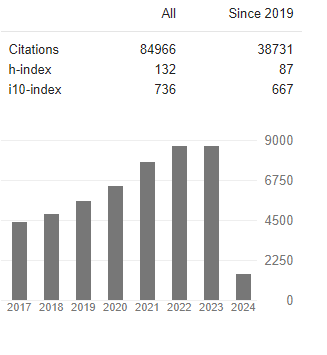Application of Artificial Intelligence to Assess the Risks of Yield Shortage
Abstract
Davron Sh. Ziyadullaev, Dilnoza T. Mukhamedieva, Gulchehra Yu. Yusupova, Dilshod E. Eshmuradov and Gulchiroy E. Ziyodullaeva
The development of the digital economy and related technologies is considered in the article; it opens up many new opportu- nities to operate with uncertain data in agriculture. This data is collected from remote sensors, satellites, robotics and remote sensing systems. This equipment gets information for twenty-four hours a day in any weather conditions. Based on these data, it is possible to monitor the state of agricultural land and soil, temperature, moisture content, and irrigation regularity. The study aims to assess the risks of yield shortages based on the use of artificial intelligence technology. The main research meth- ods are the theory of semi-structured decision-making; the theory of fuzzy sets and intelligent information technologies created simultaneously with the formalization of professional knowledge and experience of specialists in the field of management; the accumulation and updating of professional knowledge in this area; the development of mathematical models; the processing of empirical knowledge and data and the construction of a mechanism for the logical conclusion of the results of the analysis. The results of the study are the development of approaches to the intellectualization of decision-making systems in assessing the risk of crop shortages, the choice of a rational number of rules and effective values of their membership functions. The relevance and practical significance of the results are determined by the timely prediction of crop shortage risks based on the use of modern information technologies. In designing a fuzzy logic system, the dominant issue is the choice of a rational knowledge base. In this regard, the article discusses the main problems and tasks of intellectualization of information processing systems and ways to solve them.




